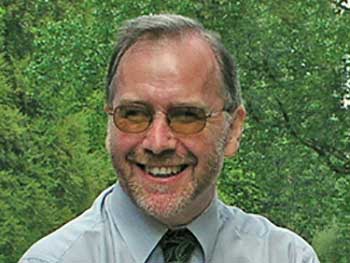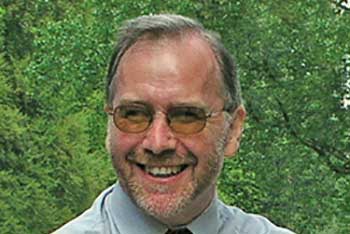A career in trees

Hugh Angus leaves the Forestry Commission and Westonbirt, The National Arboretum after 24 years this September. Here, he sums up how he followed his childhood dreams and helped to shape Westonbirt into the international success it is today.
“My focus on trees started at the age of seven when I decided that I wanted to be a lumberjack after studying a book on trees. After leaving forestry college in 1977, I joined the Forestry Commission, first in Wales and then to Northumberland. I was given the Curator’s job at Westonbirt on the 24th October 1987.
Back then the Curator’s post carried the responsibility for all activities at Westonbirt, so I became a shop keeper, tree manager, café co-ordinator and many of the other various tasks that our Director does today. Visitor numbers were 160,000 per annum and we ran at a loss of £600,000 a year. We had an annual ticket scheme and 600 Friends.
A priority was to increase income and manage the trees more effectively. My line manager Rod Leslie, was of great support. I was also encouraged by the Arboretum Advisory Committee - many of whom have become good friends over the years.
During my time at Westonbirt I have worked with many different people. If Westonbirt is to be judged a success today then Peter Gregory, Tony Russell and Phil Morton have also played significant parts, as have Margaret Ruskin, Neville Hayward, Tom Maisey and Kath Beard. Today’s team continue to play their part and I am confident that Westonbirt’s future is safe in their hands.
The first things we focused on were the day to day activities and how we might reduce costs while increasing income. The visitor centre came under attention and as we had no one to maintain the exhibition area, the shop eventually expanded to fill the space. Jenny McDonald was the person that brought real professionalism to the shop in those early days.
It soon became obvious that increased visitor numbers would mean an increase in income. We moved Tony Russell’s focus to promoting Westonbirt and recruited a new Superintendent, Phil Moreton.
During this time we also added more events to the calendar. This led to the start of the concerts, Sculptree, now Treefest, and the Illuminated Trail, now the fully fledged Enchanted Christmas event.
I remember the sleepless nights leading up to the first Illuminated Trail evening, thinking about whether people would come to look at bare branches on a cold winter’s night. As it turned out they came in thousands and as they say, the rest is history. Lynn McCracken was a real catalyst in the success of these events in their early days. She joined the team from the National Trust, where she had previously spent many years running such events.
One of the great partnerships that we formed at Westonbirt in the early years was with Stan and Diane Hynes, who opened Maples restaurant in 2000.
Closely following the success of the restaurant, the Great Oak Hall was opened in 2002 and the Plant Centre in 2003. The Great Oak Hall was a collaboration between the Friends and the Forestry Commission. Within their new base, the Friends took a higher profile and numbers increased to around 3000. We dropped our season ticket membership and converted everyone to Friends. The Friends have become everything that I would have envisaged in those early days and even a bit more.
With visitor numbers up to around the 300,000 and a relatively secure income base, we began to consider what the next step for Westonbirt should be. We needed more staff if we were to achieve even greater things and this led to the amalgamation of Bedgebury Pinetum and Westonbirt and the creation of a Director’s post.
I wanted to concentrate my efforts on managing the trees and took on the Head of Collections role. I oversaw the Bedgebury and Westonbirt tree collections and helped develop their plans and policies to the national and international status they have today.
This partnership ended a few years ago allowing me to concentrate mainly on Westonbirt. I have also worked on the Forestry Commission Tree Collections nationally; analysing current plantings and looking to the future.
What of the future then, and what have I most enjoyed over the years? In a letter to the Westonbirt magazine editor in 1987, not long after my arrival, I wrote: ‘I personally feel exhilarated, excited, slightly apprehensive and honoured to name but a few.’ Westonbirt has certainly delivered all these things in varying quantities over the years.
We all know the importance of the collection and I have enjoyed nearly every minute of managing the tree collections and all that it entails. Westonbirt has also offered the opportunity to meet people who have influenced and supported me over the years. Both external people but more importantly staff and Friends. It is they who bring the tree collection to life.
Our only major catastrophy happened late one January afternoon in 1990 when we had a severe storm. 350 big trees were blown down and many smaller specimens damaged. However, this did create some wonderful planting spaces and taught us how to reduce damage of this nature in the future. We learnt that nothing can stand up to the really big gusts of wind - we had trees weighing five tons with root plates weighing ten tons blown over. It was also clear from the amount of Norway spruce that snapped, that if we wanted to plant trees for long term shelter, this was not the species to choose.
Sharing our enthusiasm for trees with visitors through education and interpretation has always been hugely important for us. This is one of the many things that allows us to say we are a world class collection. This was started in our early days by Mary Barton, replaced by Kevin Beckett and now by Ben Oliver and his team.
I am particularly proud of how professionally the collection is managed today and it is great to see us actively collecting seeds from places like Japan, Chile, USA and Turkey. I truly believe that we can say we are today managing to a world class level. That is not to say that improvements cannot be made, but that is for the next generation. Although my professional contact with Westonbirt has ended I am now considering how my retirement time will be spent here, so I am afraid you have not seen the last of me. I wish you all well for the future."
